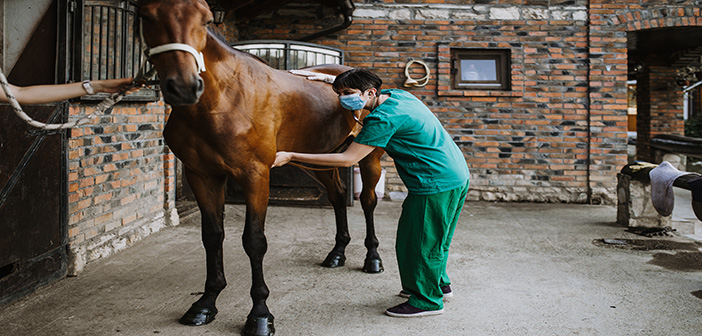The Veterinary Medicines Directorate recently hosted an online Equine Anthelmintic Resistance Stakeholder Workshop, which aimed to define the challenges associated with anthelmintic resistance in equine endoparasites, to highlight the current evidence gaps and to determine how sector stakeholders can collectively identify solutions.
Delegates attended from a broad range of stakeholder groups including prescribers (vets, pharmacists, SQPs), parasitologists, horse owners, charities/levy boards, guidance/policy makers, retailers, diagnostics and pharmaceutical industries.
The Workshop consisted of a series of short presentations from external and internal experts, followed by small group breakout sessions to encourage associated discussion amongst delegates. The presentations included an update on the current status of anthelmintic resistance in equine parasites from a global perspective, followed by an update on the UK situation with a focus on the availability and use of anthelmintics and diagnostic tools.
An overview of the history, composition and achievements of the UK pan- industry group for the sustainable control of parasites in sheep (SCOPS) was provided, alongside an update on how UK antimicrobial resistance (AMR) activities have promoted awareness and behaviour change through coordinated approaches, to stimulate consideration of whether similar approaches could benefit the equine sector.
A spokesperson for the VMD said: “There was widespread enthusiasm amongst delegates for involvement in follow on initiatives. Delegates considered that a coordinated approach to tackling anthelmintic resistance in horse parasites was needed via the formation of a pan-industry equine stakeholder group (akin to SCOPS).
“This pan-industry group could act as the ‘single source of truth’ by developing and agreeing best practice guidelines and communication messages. It could also guide related activities such as development of communication and education strategies, exploration of research priorities, identifying and supporting sustainability models, facilitating better utilisation of existing data and improving uptake and standardisation of diagnostics.”
The VMD said many delegates volunteered for involvement in such future activities, expressing a need to capitalise on the broadscale expertise and knowledge already present within the UK equine sector and the requirement for the adoption of a fully joined up approach.
The VMD said: “To move forwards, more work is now required from across the sector to transform this collective enthusiasm and positivity into coordinated action and improve awareness of this initiative. It will be essential to capitalise on the valuable contribution from all who have engaged to date, to enable advancement to the next step.
“A second Workshop will be convened by the VMD to permit discussion and engagement on the identified key themes. At this time, we hope that ownership of future activities will be agreed, the VMD will move to a facilitation role and the cross-industry ownership, that is so essential for the success of this initiative, will commence.”


